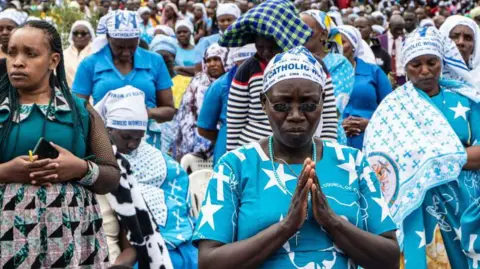Kenyan President William Ruto, who rose to power two years ago with strong support from Christian communities, is now facing growing disapproval from church leaders across various denominations. Once hailed as a “David” figure by his evangelical backers, Ruto’s recent tax policies and governance approach have drawn sharp criticism, painting him more as a tax collector than a savior.
Ruto’s association with religion has always been a defining feature of his political journey. He frequently attended church services, adopted local religious customs, and openly credited God for his electoral victory. However, the president’s popularity has waned due to steep tax increases, rising costs of living, and unfulfilled promises. Critics have nicknamed him “Zakayo,” a reference to Zacchaeus, the biblical tax collector.
The turning point came during nationwide protests in June, led largely by Kenya’s younger generation. Demonstrators not only opposed Ruto’s tax hikes but also criticized churches for aligning too closely with politicians. This backlash spurred religious leaders to distance themselves from the government, with some clergy openly denouncing Ruto’s administration.

A pivotal moment occurred when Catholic bishops issued a bold statement condemning the government for fostering a “culture of lies,” citing corruption, unkept promises, and oppressive taxation. The bishops also rejected a $40,000 donation from Ruto during a church visit, citing ethical concerns. This act of defiance has resonated with Kenyans, many of whom see the bishops as reviving the bold activism of the 1990s, when religious leaders fought for democracy and justice.
Leaders from other denominations and faiths have joined the chorus of criticism. Anglican Archbishop Jackson Ole Sapit condemned the government for rights violations and mismanagement, while Baptist and Muslim clerics called for a new, non-transactional relationship between religious institutions and the state.
Initially defensive, Ruto and his allies have since softened their tone. MP Oscar Sudi apologized to the Catholic bishops, and Ruto himself acknowledged the criticisms, expressing a willingness to work with religious leaders to address national challenges.
The president’s reliance on Christian backing, once a cornerstone of his success, now appears precarious. As public dissatisfaction grows, church leaders’ influence could significantly shape the political landscape ahead of the next election. For Ruto, the institutions that once propelled him to power may now pose a serious threat to his presidency.


